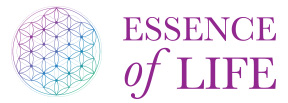Did you know…
Sleep can sometimes be even more important than what we eat!
Having sleep deprivation, has numerous negative effects and causes major levels of stress, wreaking havoc on our health. There is an epidemic of sleep deprivation. And people’s awareness about it, is very low. Sleep time is when we repair, detoxify, regenerate and our immune systems function the most! Humans can die from not getting proper sleep.
Comparing eating the wrong food with the right attitude than the right food with the wrong attitude, you could eat a really crappy diet for a really long time before the consequences become apparent. Whereas with sleep deprivation, the effects are instant!
Research tells us that at least 7-8 hours (depending on your age group) of sleep per night is needed for optimal function and prevention of disease. We are falling short!
The national sleep foundation says: 35% of USA adults sleep less than 6 hours per night. This number was at 2% in 1960 and 20% in 1985. 70×106 (1/4) people in the USA are affected by sleep deprivation!
The average number of sleep per night per age group is suggested to be:
Newborns (Age 0-2 months) = 12-18 hours
Infants (Age 3-11 months) = 14-15 hours
Toddlers (Age 1-3 years) = 12-14 hours
Pre-schoolers (Age 3-5 years) = 11-13 hours
School-aged children (Age 5-10 years) = 10-11 hours
Pre/Teens (Age 10-17) = 8.5-9.25 hours
Adults = 7-9 hours
Are you getting enough?!
Given today’s society, we often find it difficult to find enough time to sleep and would find it convenient to sleep when “we’re dead”, but this cannot be the case!
We have this idea that when we sleep, we can’t do anything, we can’t be productive; But really, the opposite is true. Having proper sleep, allows us to be able to “live” and be productive in our waking hours. Sleep is crucial because we can’t escape the consequences.
Sleeping less time than what is suggested for your age group can cause horrible health effects. Research shows that 6 hours or less of sleep for a couple of nights in a row, showed that people began to adapt and say they felt fine…. But they were functioning poorly. Don’t underestimate such problems that can occur. Common effects of sleep deprivation are:
Irritability
Cognitive impairment
Memory lapses or loss
Impaired moral judgement
Severe yawning/Head jolting/Inability to stay awake
Hallucinations
Symptoms similar to ADHD
Impaired immune system
Risk of Diabetes Type 2
Increased heart rate variability
Risk of heart disease
Growth suppression
Risk of obesity
Decreased body temperature
Stressing the body this way, constantly puts you in a “fight or flight response” mode.
Can you remember a time (or many) where you didn’t get enough sleep, and were unable to fully do basic tasks, possibly causing many mistakes or accidents? Sleep is important for us all-as much so as the fuel we put in our bodies when we eat!
There’s a great way we can assist with Sleep deprivation, and that is through following our very own Circadian Rhythms: All of us have a biological clock – timed appropriately with the changes in the day. This is an aspect of being a mammal/animal. How do bears know how to hibernate…and how do birds know to start tweeting in the morning at the first spot of daylight and rising of the sun? They do this all through their natural wisdom and body rhythms.
We are all innately built to have this clock within each of us, which is located in our Supra Chiasmatic Nucleus or Nuclei (SCN), found in the hypothalamus. It is responsible for controlling our circadian rhythms.
Circadian Rhythms effects everything in our bodies, including:
When we sleep and awaken, our body temperature, our hormones, and our gene expression, among many other things.
In order to follow our Circadian rhythms as our ancient ancestors did, it is important that we follow the natural occurrences of the day: Rising with the sunlight at dawn and winding down and falling asleep as the daylight disappears into night, with dusk. This helps us help our bodies to regulate its own natural rhythm.
With the age of technology occurring only in the last 130 years, artificial light (electricity) was introduced. In 1879, became the first street lamp in NYC; With lots of benefits, but lots of cost too.
Profound consequences are explained when not getting enough sleep, because individual cells are affected by the natural light. NKC, B-cells, T- cells – Immune system
Associated with (our):
Depression
Gut
Cancer
Immune system
Obesity
Endocrine
Cardiovascular Disease
Cognitive
Diabetes
Increased Risk of Death
Unnatural light Pollution is the fastest growing form and is very disruptive to circadian rhythms.
Artificial light, particularly “Blue light” found in our phones and tablets and televisions –which are not easy to stay away from before bedtime, secretes our body’s own natural melatonin and pineal gland which is responsible for making you feel tired and sleepy. When the sun goes down and it’s dark outside – and the laptop goes on, our brain is thinking it is daytime. Those using electronic devices between 7pm-12am (the time our body’s know to naturally wind down and fall asleep) results in poor sleep. The greater the exposure to TV and the internet, the greater there is insufficient sleep and lowered sleep quality. Bright lights and nightlife, and not being able to sleep….Las Vegas, anyone? It all makes sense.
Our body’s own natural way, is to produce Melatonin, which increases at sunset
The problem with artificial light, is that it suppresses the onset of melatonin, and lowers our sleep duration and its quality.
Other aspects that deprive us of our sleep and natural circadian rhythm usage:
Shift Work – 1/5 of the industrialized world. Most harmful is the night shift, and rotating shifts.
Long Distance Travel — Going to different time zones. Adjusting and adapting through each new time zone you enter.
Cancer rates and Circadian Disruption: Melatonin plays a huge role in inhibiting cancer growth & immune function. John Hopkins University research reports that with 16 hours of light and 8 hours of dark, there was a high percentage of tumors developed. But with 16 hours of dark, and 8 hours of light, Melatonin increased, but with no evidence of cancer.
Earth naturally has adequate periods of light and darkness through the year, and we should therefore follow these natural patterns as much as possible.
Evolutionary wise, we probably started with 12 hours of light and 12 hours of darkness.
In the Wintertime, life is colder and harder, so the darkness is increased and extended in order to support our healing/rest time and provide more support for proper immune function.
Research finds that with more and more light at nighttime, our natural melatonin significantly decreases, resulting in:
16% higher breast, colon, endocrine cancers with people working night shifts for 10 years or more; 30% higher prostate cancer in those working night shifts.
We are often shocked to hear about all the incidences of cancer, but we can’t make all these changes (environment, lack of sleep, improper eating and increased stress) and not have an effect on our health. We Think we can control Nature! We can’t escape our natural rhythms – we are animals, not machines.
Chronic Jet Lag for Flight crews: Living in different places and constantly travelling, result in less sleep, lower cognitive function, increased cortisol, increased cancer risk. Prostate and Breast cancer rates are known to be 40% higher with flight personnel.
Cardiovascular Disease is the #1 killer. Chronic sleep deprivation impairs the cardiovascular system. 1 night of no sleep, increases insulin resistance. With no sleep, body mass increases. Hormonal changes occur, also resulting in no appetite control.
Impaired judgement of food, results in increase sugar intake,
Single night’s sleep deprivation burns fewer calories even when just sitting there.
What Can we do? Steps to take to help with better sleep:
Make Sleep a Priority – this is obvious, but even if you did everything else and not this, sleep deprivation will make a biggest impact.
Be in bed for your suggested times! Less than 6 hrs hours makes a great job burnout, and clear decline in productivity. Performance variables change dramatically when you have more than vs. less than sleep.
More time off= Being more productive – Having 10 hours extra off per year results in 8% more productivity.
Control Exposure to Light
Decrease artificial light at night.
Increase exposure to natural light in the morning (this increases cortisol in the morning, which we are often missing). Reduce wearing sunglasses in the morning, as the eyes need the light to know that it is daytime. (Sunglasses mimic reduced light, and therefore, night time effects.)
Use a Sun-mimicking SAD Machine= sit 20 min in front of. https://www.amazon.ca/Lumie-Clock-Active-Simulator-Alarm/dp/B00AKDZ6ME/ref=sr_1_1?s=hpc&ie=UTF8&qid=1523907098&sr=1-1&keywords=lumie+bodyclock
At night time: Turn the computer off as the sun goes down. For a minimum of 3 hours before bedtime. Cover anything that emits light, such as alarm clocks, etc. – Even a small amount of light disrupts sleep. Use blackout shades/eye masks – even for kids!
Dim the lights as the sun goes down.
Orange Glasses: Uvex- Filter spectrum that increases melatonin, which is great for usage if you have to be on the computer before bedtime. This helps to increase sleep mood.
Don’t stay up late. We need sleep. https://www.amazon.com/Uvex-Blocking-Computer-Glasses-SCT-Orange/dp/B000USRG90
F.lux – For computers, install on them all. It dims the monitor depending on the time zone, to help it match the natural light, outside. It is FREE https://justgetflux.com/
Adequate Exercise Levels:
Decrease the amount of sedentary time!
We are designed to be physically active throughout the day, not only go to the gym for 1 hour.
Helpful things to use:
A Stand-up desk, a Treadmill desk, Fit Bit.
Every 20-30 minutes, move for 2-3 minutes.
Take the stairs when possible.
Walk when you can!
Nutrition
Have a lighter dinner, containing glutinous animal products. Those that eat a wider range of foods have more normal sleep patterns.
STOP EATING 3 hours before bed. This helps to optimize blood sugar, so you don’t have sugar floating around in your bloodstream, helping to jumpstart glycogen depletion and fat-burning.
Avoid snacks in the middle of the night to desynchronize your internal food clock. This leads to weight gain.
Regulate Your Nervous System Throughout the Day!
*If you are over-stimulated throughout the day, you’ll often have problems winding down at night.
*Mindfulness-based stress reduction, Biofeedback (warming hands), and having Chiropractic adjustments on a regular basis, helps to reduce stress and regulate your nervous system.
Do gentle Exercise with Music
Rest Assured – http://www.soundsleeping.com/
2-5 minutes per day: Move at half speed & experience your thoughts and feelings.
Pay attention during the day of what & how you are feeling.
Take a real meal break.
Environment – Bedroom
1) Use the bedroom only for sleeping and intimacy. Try to not keep phones, tablets etc. in the bedroom.
2) This is a relaxing environment, invest money here –pillow (water pillow), and a good quality mattress.
3) Control temperature of the room, slightly cooler, less than 70 degrees F.
4) Avoid emotionally stimulating conversation etc.. Avoid looking at things like stocks, bank records etc.
5) Noise level – Wear earplugs
6) Move alarm clocks and electrical devices away from head
7) Use Blackout blinds/mask
8) Check bedroom for Electric magnetic fields (EMF) – which disrupt the pineal gland and production of melatonin. Gauss metre –
or just cut the power at sleep time!
Avoid:
Black tea, coffee – These have a half-life of 5 hours which means 25% is still in our system for 10 hours; 12.5% still in our system for 20 hours.
Alcohol – Which makes you drowsy, leading you to think it’s great for sleep, is more likely to have you wake during the night, leaving you less restored.
Tobacco
Dark chocolate – Great antioxidant, but not at night.
Spicy food – before bedtime. This is linked with more time spent awake at night and taking longer to fall asleep. Possibly due to the capsaicin (an active component in chili peppers) which increases body temperature, which should be cooler at night time.
Normal sleepers (7-8 hrs) had the most variety in diet which is generally associated with a healthier way of eating.
Bottom line: Get more sleep!!




